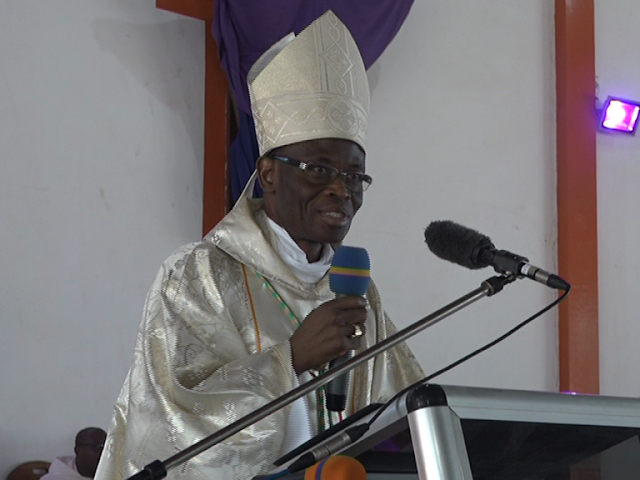respectively. This
was disclosed by the Regional Director of the Ghana Health Services GHS Dr.
Windfred
Ofosu, during the first ordinary meeting of the Regional Coordinating Council
RCC for the
year 2018, at the conference Hall of the Regional Coordinating Council in Bolgatanga.
year 2018, at the conference Hall of the Regional Coordinating Council in Bolgatanga.
The meeting which brought together stakeholders
including the 13 Municipal and District Chief Executives, Technocrats, Heads of
Departments, presiding members, the Media among others.
It was in fulfillment of the Local Government
Act 936 of 2016, which mandates the Regional Coordinating Councils throughout
the country to hold at least two ordinary meetings in a year.
Speaking to GBC online, the Regional Director
of the Ghana Health Services GHS Dr. Winfred Ofosu gave the reasons for the
high recorded cases of Institutional maternal deaths in the region as
non-communicable disease such as bleeding profusely, hypertension and quack
doctors.
Dr. Ofosu also mentioned that the
region for the past three years had recorded high prevalent rates of HIV/AIDS
cases. He cited for instance that whilst in 2014 and 2015, the region recorded
prevalent rate of 1.4 per cent and 1.5 per cent respectively, it also recorded
1.7 per cent in 2016.
On the Doctor patient ratio, the
Regional Director described it as not the best and indicated that the region
which has a population of One
million, Two hundred and sixteen thousand six hundred and 80 is currently having only 10 doctors, two of them Cubans.
He however, hinted that another batch of
eight doctors had just been posted to the region and indicated that measures
were being taken to ensure that they stay and work in the area.
The Regional Director mentioned
inadequate water supply, lack of accommodation and staff attitudes among the
factors affecting quality health care delivery in the region.
He indicated that measures were being
put in place to mitigate such problems and to ensure prudent use of financial resources
especially internally Generated Funds.
The Regional Minister , Mr Rockson Bukari
Ayine on his part stressed that whilst there were other part time jobs in the big cities like Kumasi and Accra for
doctors working in such places to make additional income it was not so in the
region.
There is the urgent need for pragmatic measures including holding
stakeholder meetings in the region involving everybody particularly all the
fifteen Municipal and District Assemblies, traditional and religious leaders as
well as the Cooperate world to chart the
way forward to help retain doctors in
the region,
Story by:: GBC’s Emmanuel Akayeti








